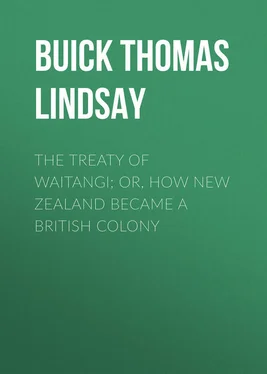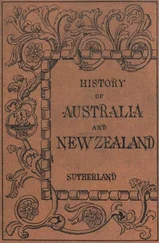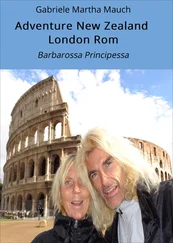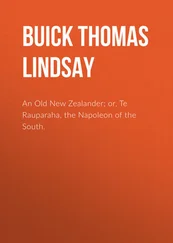Thomas Buick - The Treaty of Waitangi; or, how New Zealand became a British Colony
Здесь есть возможность читать онлайн «Thomas Buick - The Treaty of Waitangi; or, how New Zealand became a British Colony» — ознакомительный отрывок электронной книги совершенно бесплатно, а после прочтения отрывка купить полную версию. В некоторых случаях можно слушать аудио, скачать через торрент в формате fb2 и присутствует краткое содержание. Жанр: foreign_antique, foreign_prose, на английском языке. Описание произведения, (предисловие) а так же отзывы посетителей доступны на портале библиотеки ЛибКат.
- Название:The Treaty of Waitangi; or, how New Zealand became a British Colony
- Автор:
- Жанр:
- Год:неизвестен
- ISBN:нет данных
- Рейтинг книги:5 / 5. Голосов: 1
-
Избранное:Добавить в избранное
- Отзывы:
-
Ваша оценка:
- 100
- 1
- 2
- 3
- 4
- 5
The Treaty of Waitangi; or, how New Zealand became a British Colony: краткое содержание, описание и аннотация
Предлагаем к чтению аннотацию, описание, краткое содержание или предисловие (зависит от того, что написал сам автор книги «The Treaty of Waitangi; or, how New Zealand became a British Colony»). Если вы не нашли необходимую информацию о книге — напишите в комментариях, мы постараемся отыскать её.
The Treaty of Waitangi; or, how New Zealand became a British Colony — читать онлайн ознакомительный отрывок
Ниже представлен текст книги, разбитый по страницам. Система сохранения места последней прочитанной страницы, позволяет с удобством читать онлайн бесплатно книгу «The Treaty of Waitangi; or, how New Zealand became a British Colony», без необходимости каждый раз заново искать на чём Вы остановились. Поставьте закладку, и сможете в любой момент перейти на страницу, на которой закончили чтение.
Интервал:
Закладка:
"I beg leave," continued Mr. Somes, "to assure your Lordship in the name of my colleagues that we intrude on you with the greatest reluctance. But we have felt that it was incumbent on us especially during the recess of Parliament to convey to your Lordship the information that we have received as to the state of feeling in France on this subject, so that if unhappily the British sovereignty of New Zealand were lost it should be through no fault of ours. We fear that the measures recently adopted by the Colonial Department may, unless promptly remedied, lead to very disastrous results. We are deeply concerned for the fate of a large and most respectable body of our countrymen, who have emigrated under our auspices. Connected as several of us are with the commercial and shipping interests of the country, and knowing therefore how much importance they attach to the British possession of New Zealand, as they have frequently stated in memorials to the Treasury and Board of Trade, we have felt that it was a duty to express to your Lordship the apprehensions which we entertain. We have been told that a French frigate recently sailed for the South Seas with sealed orders, and some of the French newspapers report, with expressions of satisfaction, that the Government of the United States of America has appointed a Consul in New Zealand, to be accredited to 'the Confederation of chiefs,' and has sent him to his destination in a man-of-war, which is to remain under his orders. These statements may be untrue, or only premature, but in either case Captain Hobson's instructions which attach two conditions, either or both of which may be unattainable, to the exercise of any authority by him in New Zealand, namely possession of the land by British subjects, and cession by the natives of the sovereignty over such land, are calculated to invite foreign pretensions which otherwise would never have been imagined."
This protest was taken most philosophically by Lord Palmerston, who merely passed it on to Lord John Russell, who had now succeeded Lord Normanby at the Colonial Office. Lord John treated it even more philosophically, for it was not for several months (March 11, 1840) that he deigned to reply, and then only after he had been reminded of the omission by the Foreign Office. In the meantime all need of further argument had been obviated by the success of Captain Hobson's mission, and so the Colonial Secretary wasted no words in rhetoric, but forwarded to his colleague a memorandum couched in concise official terms, setting out in sequence the events which in the light of International law would be used as evidence against any claim to British sovereignty, and which contained all the information it appeared necessary to afford in answer to the communication from Mr. Somes.
It is easy to understand the indignation of the Company on learning of the Minister's repudiation of British sovereignty in New Zealand, because it sapped the very foundations of their scheme, seeing that it was illegal for British subjects to establish colonies outside the limits of the Empire without the sanction of the Crown. They had always presupposed the existence of a British sovereignty over New Zealand and upon that supposition all their calculations had been built. Now the basis of their building had gone, they adroitly pretended that what grieved them was not so much their loss as that the repudiation of British authority was a national calamity, and that what was the neglect of Britain became the opportunity of France.
The position taken up by the Government was, however, perfectly sound, and was the only logical one they could occupy. Whether previous Governments had acted wisely and well in declining to embrace the opportunity to colonise which Cook's discovery had opened to them, may be a debatable question, but the fact at this date was that the golden opportunity had passed, and that by subsequent diplomatic acts, deliberately taken, the independence of the Maori people had been clearly and emphatically acknowledged. "The answers," wrote Lord John Russell to Lord Palmerston, "which would be made by foreign nations to such a claim as that put forward by Mr. Somes are two. First that the British Statute Book has, in the present century, in three distinct enactments, declared that New Zealand is not a part of the British Dominions, and secondly that King William IV. made the most public, solemn, and authentic declaration which it was possible to make that New Zealand was a substantive and independent state. The resolution by the King, Lords, and Commons of Great Britain of the fact that New Zealand is not a part of the British Dominions will be found in the Statutes 57 George III. cap. 53, 4 George IV. cap. 96, sec. 3, and 9 George IV. cap. 83, sec. 4."
The Act of 57 George III. cap. 53 is entitled "An Act for the more effectual punishment of murders and manslaughters committed in places not within His Majesty's dominions." It sets forth – "Whereas grievous murders and manslaughters have been committed at the settlement of the Bay of Honduras in South America, etc.," "and the like offences have also been committed in the South Pacific Ocean, as well on the high seas as on land, in the Islands of New Zealand and Otaheite, and in other Islands, countries, and places not within His Majesty's dominions, by the Masters and crews of British ships, and other persons who have for the most part deserted from or left their ships, and have continued to live and reside amongst the inhabitants of those Islands, etc.," and the Act then provides for the punishment of offences so committed "in the said Islands of New Zealand and Otaheite, or within any other Islands, countries, or places, not within His Majesty's dominions, nor subject to any other European State or power," etc.
The Statute 4 George IV. cap. 96, sec. 3 enacts that the Supreme Courts in the colonies of New South Wales and Van Dieman's Land may try offences "committed in the islands of New Zealand, Otaheite, or any other Island, country, or place, situate in the Indian or Pacific Oceans, and not subject to His Majesty or to any European State," if such offences were committed by British subjects.
The Statute 9 George IV. cap. 83, sec. 4 repeats that enactment in the same words, adding only that the punishment of the offence shall be the same as if the crime had been committed in England.
The recognition by King William IV. of New Zealand as a substantive and independent state is shown in the following narrative:
"On November 16 a letter to King William IV. from thirteen of the chiefs of New Zealand was transmitted to Lord Goderich, praying the protection of the British Crown against the neighbouring tribes and against British subjects residing in the Islands. On June 14, 1832, Lord Ripon despatched Mr. Busby as British Resident, partly to protect British Commerce, and partly to repress the outrages of British subjects on the natives. His Lordship sent with Mr. Busby a letter to the chiefs, in which the King was made to address them as an independent people. Their support was requested for Mr. Busby, and they were reminded of the benefits which they would derive from 'the friendship and alliance with Great Britain.'
"In the month of June 1832 a Bill was brought into the House of Commons for the prevention of crimes committed by His Majesty's subjects 'in New Zealand, and in other Islands in the Pacific not being within His Majesty's dominions.' The Bill was rejected because Parliament could not lawfully legislate for a foreign country.
"On April 13, 1833, the Governor of New South Wales, in obedience to Lord Ripon's (formerly Lord Goderich) orders, addressed instructions to Mr. Busby, in which New Zealand was expressly mentioned as a foreign country, and Mr. Busby himself as being accredited to the chiefs. That document throughout assumes the independence of New Zealand.
Читать дальшеИнтервал:
Закладка:
Похожие книги на «The Treaty of Waitangi; or, how New Zealand became a British Colony»
Представляем Вашему вниманию похожие книги на «The Treaty of Waitangi; or, how New Zealand became a British Colony» списком для выбора. Мы отобрали схожую по названию и смыслу литературу в надежде предоставить читателям больше вариантов отыскать новые, интересные, ещё непрочитанные произведения.
Обсуждение, отзывы о книге «The Treaty of Waitangi; or, how New Zealand became a British Colony» и просто собственные мнения читателей. Оставьте ваши комментарии, напишите, что Вы думаете о произведении, его смысле или главных героях. Укажите что конкретно понравилось, а что нет, и почему Вы так считаете.












